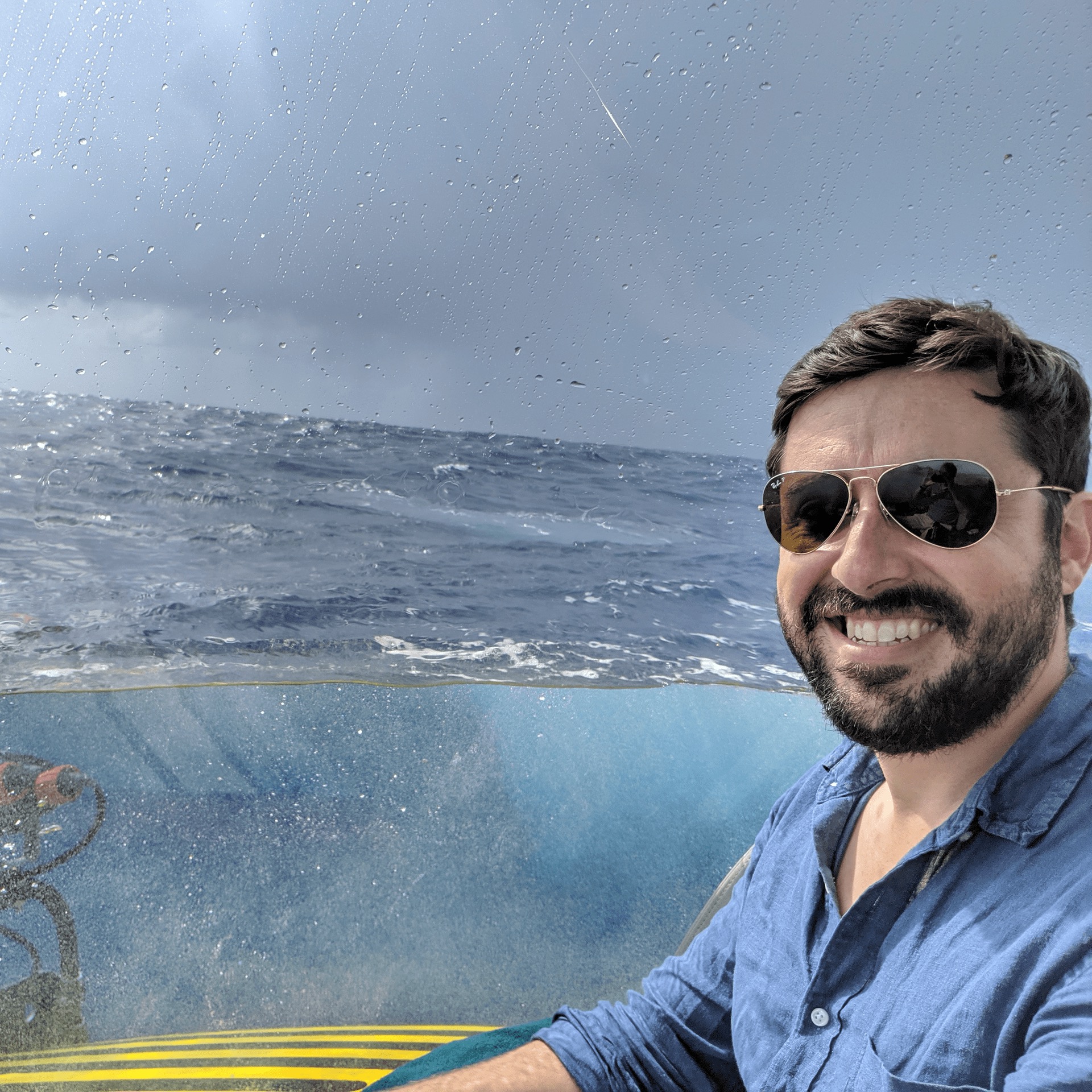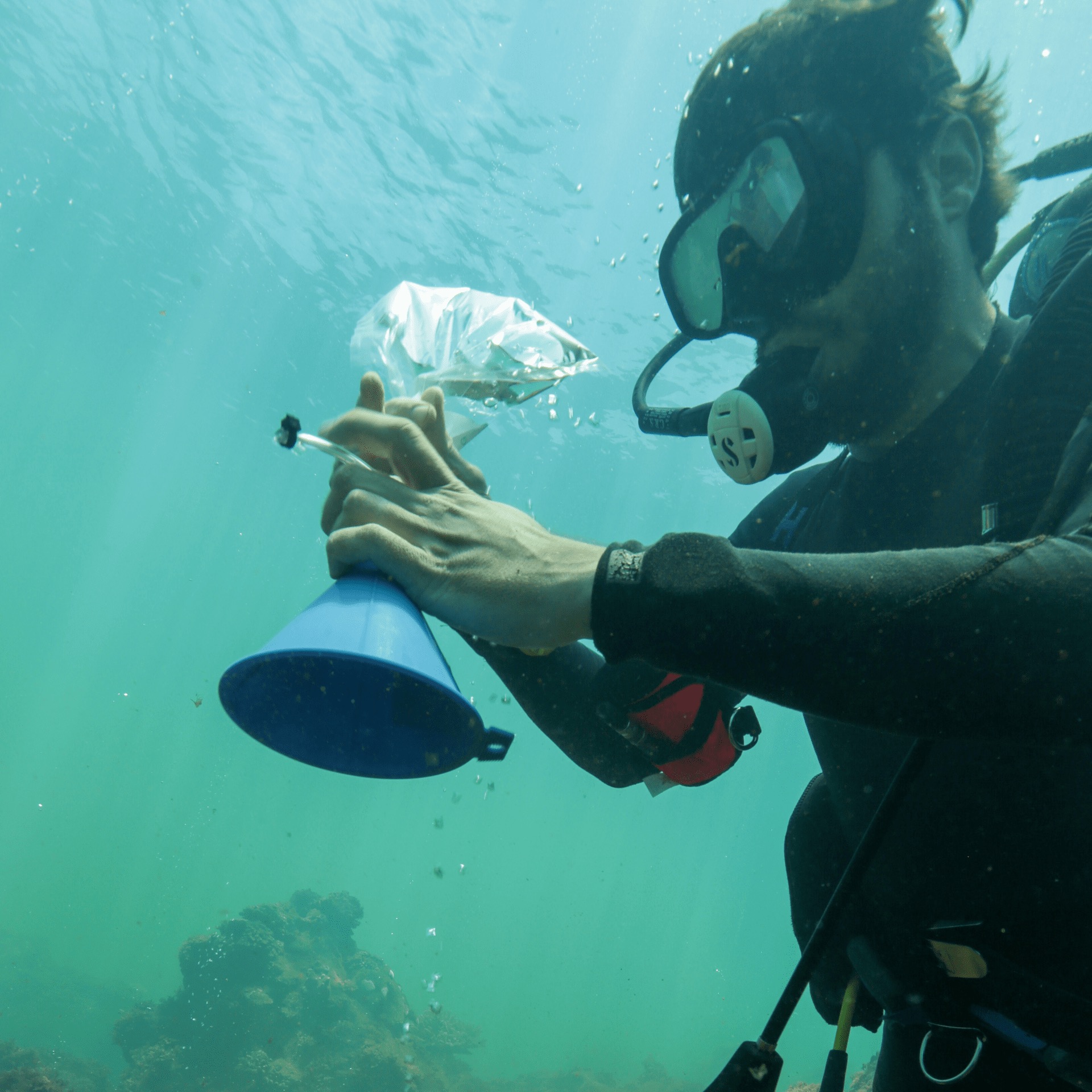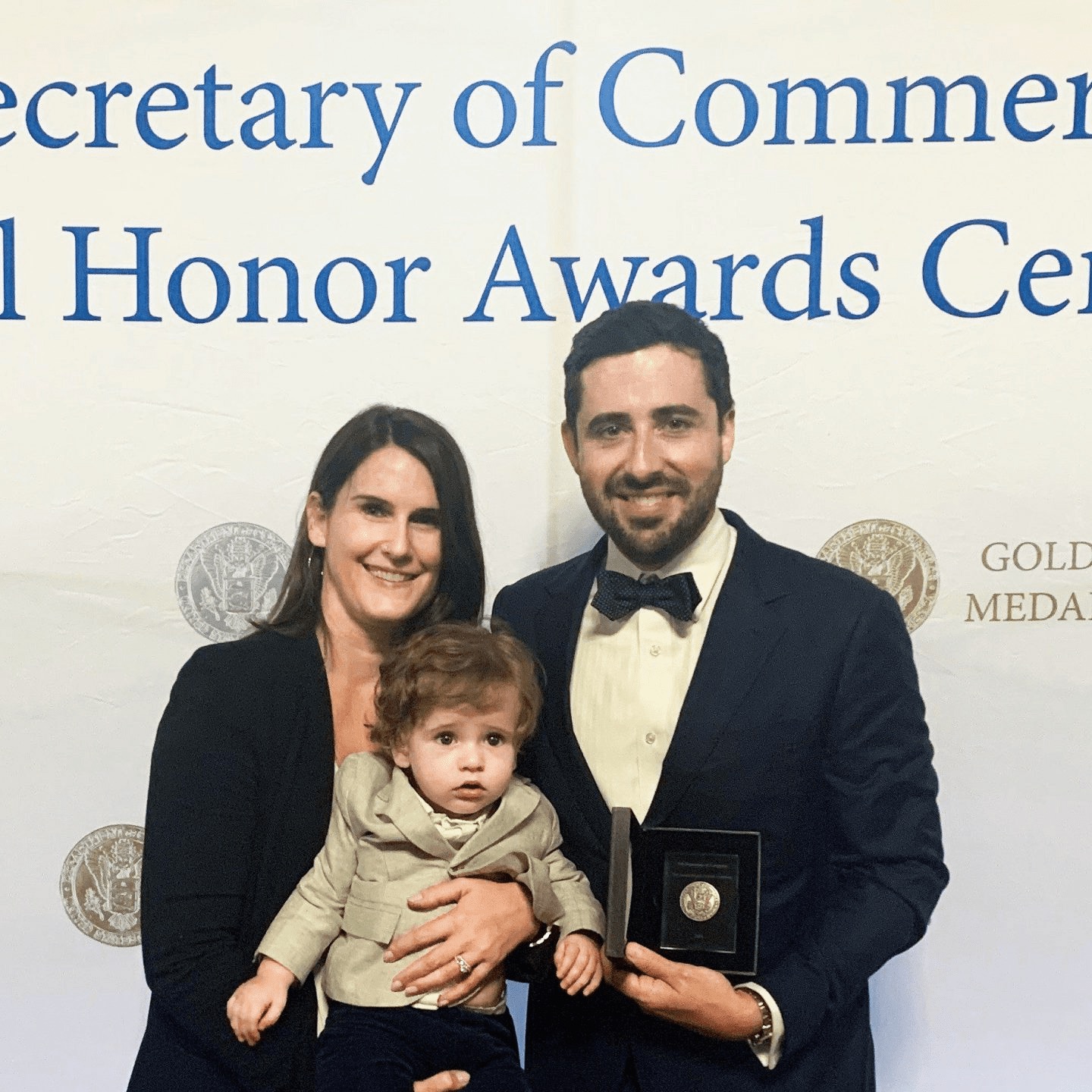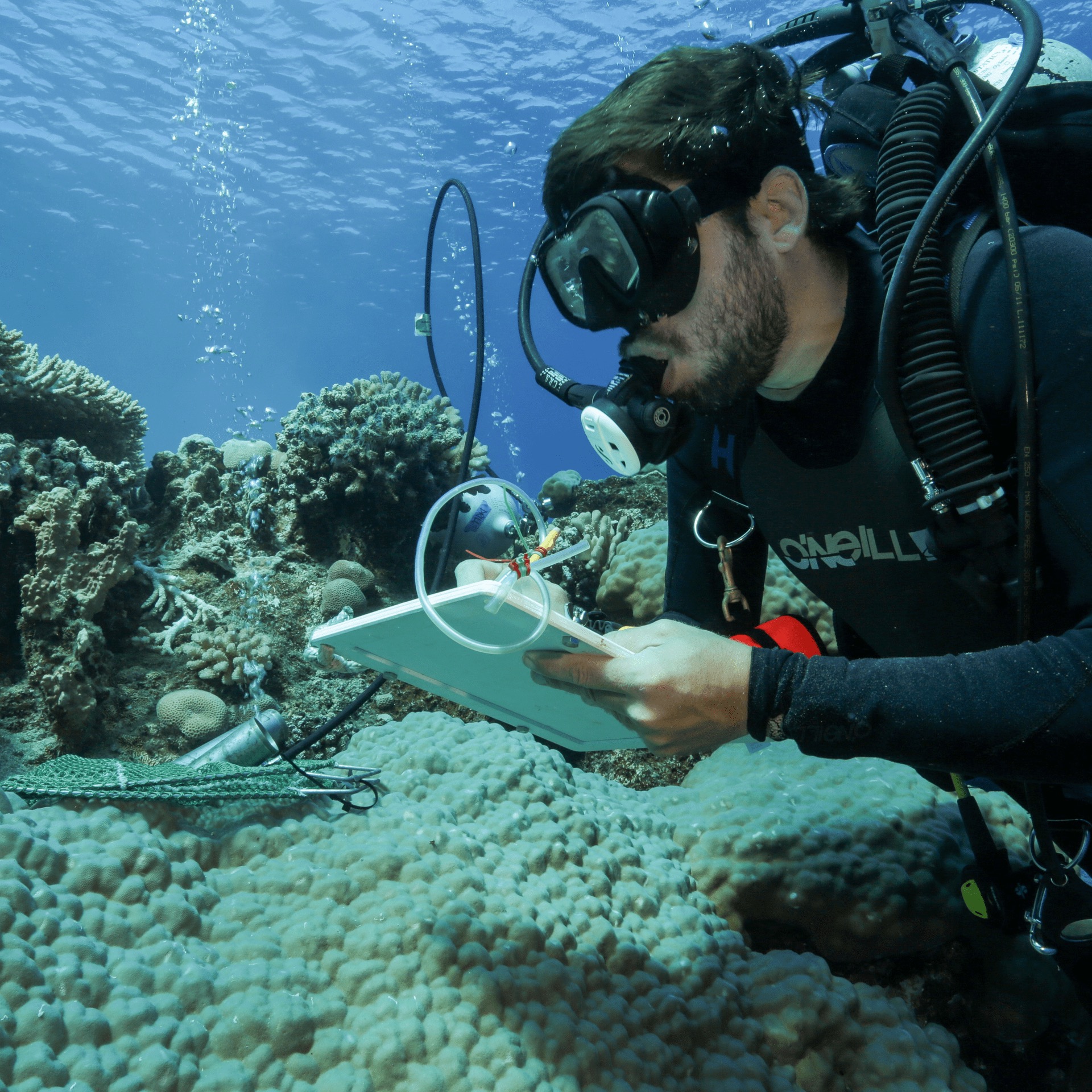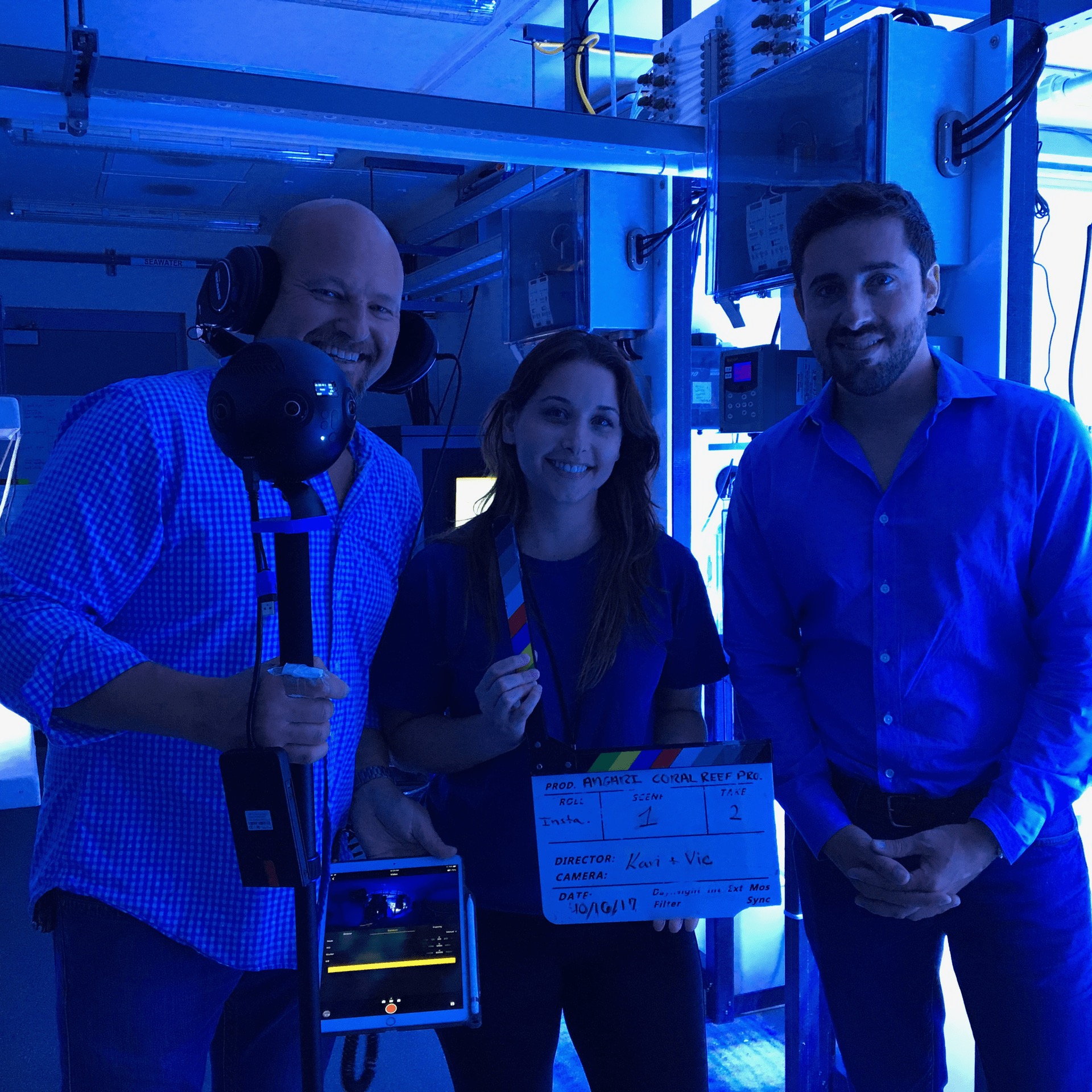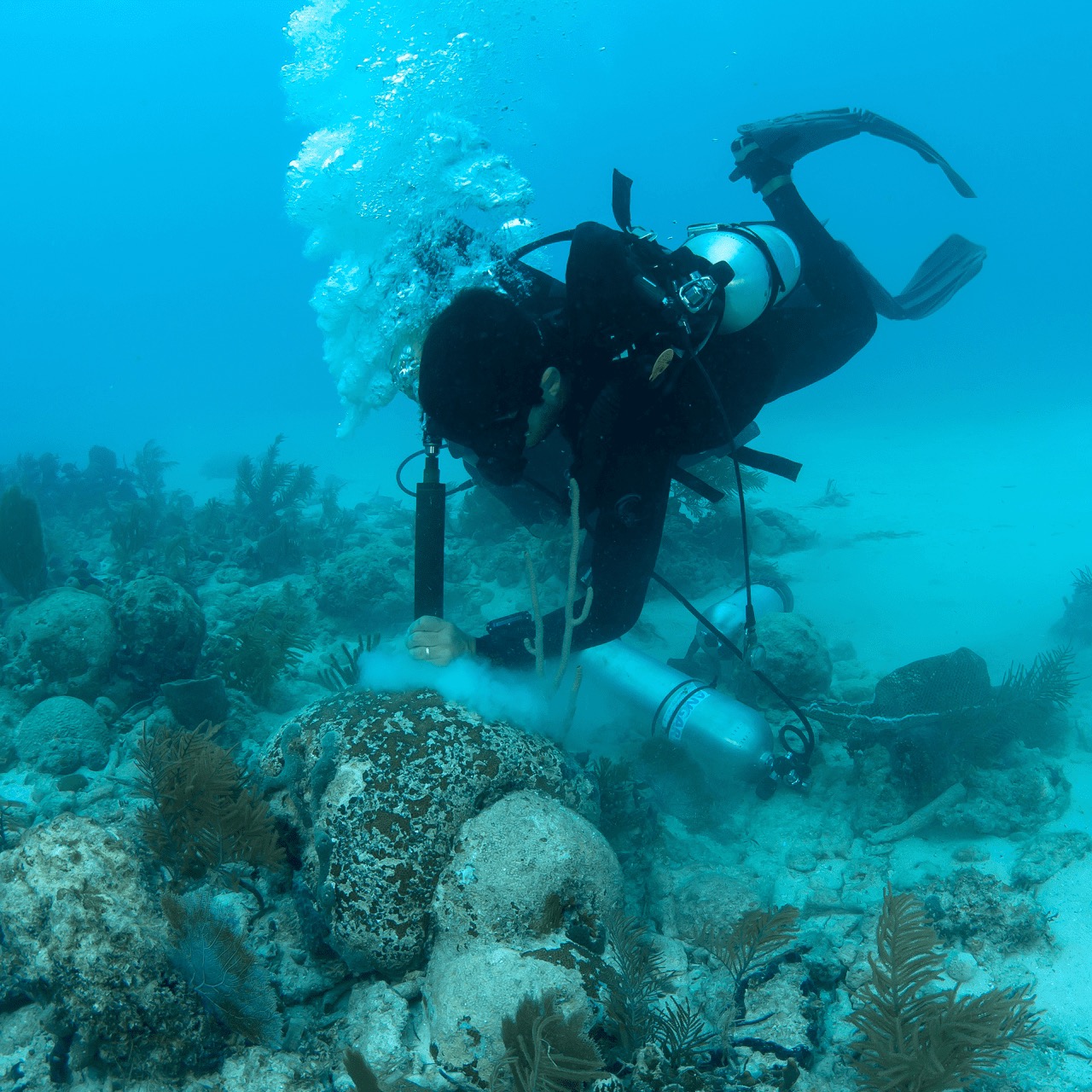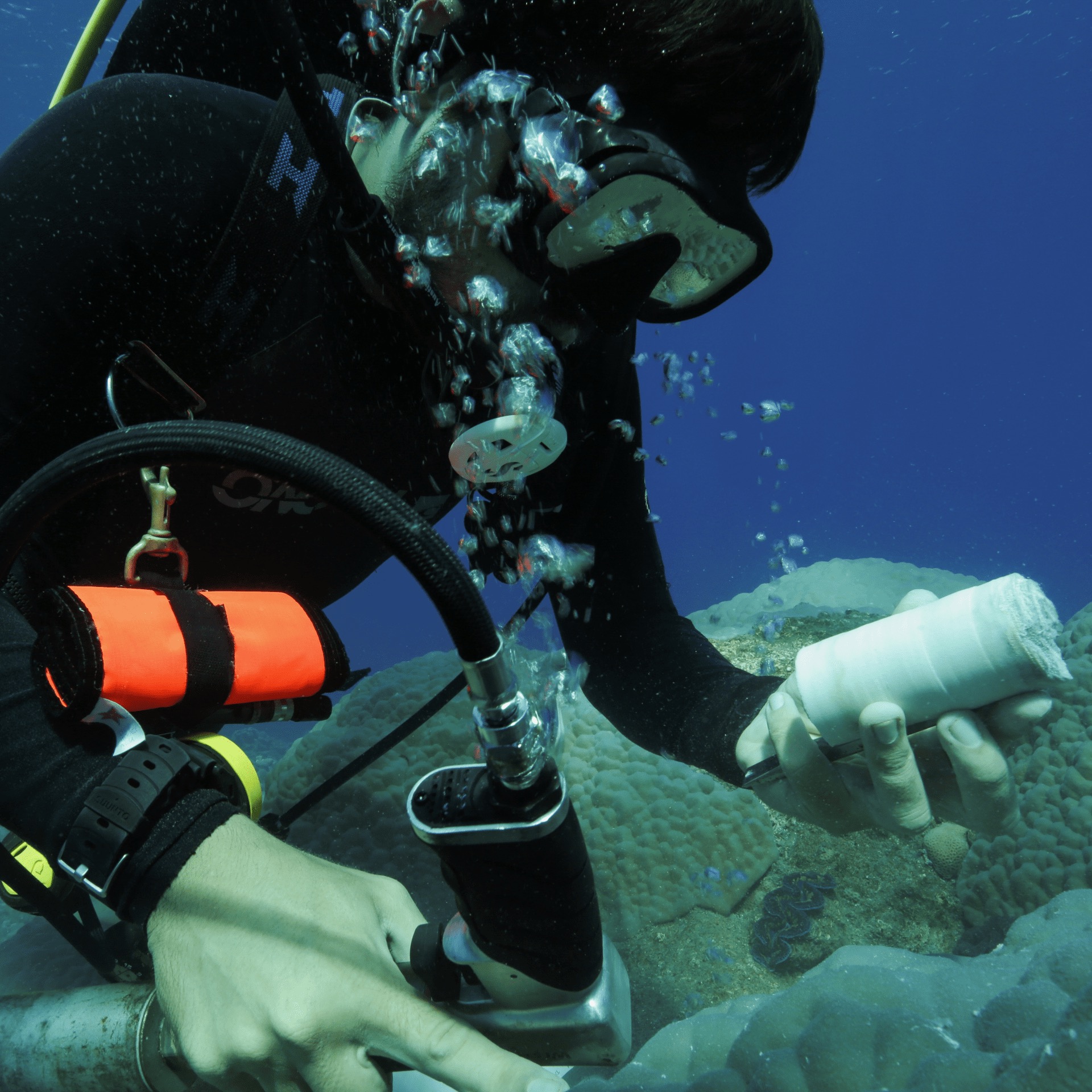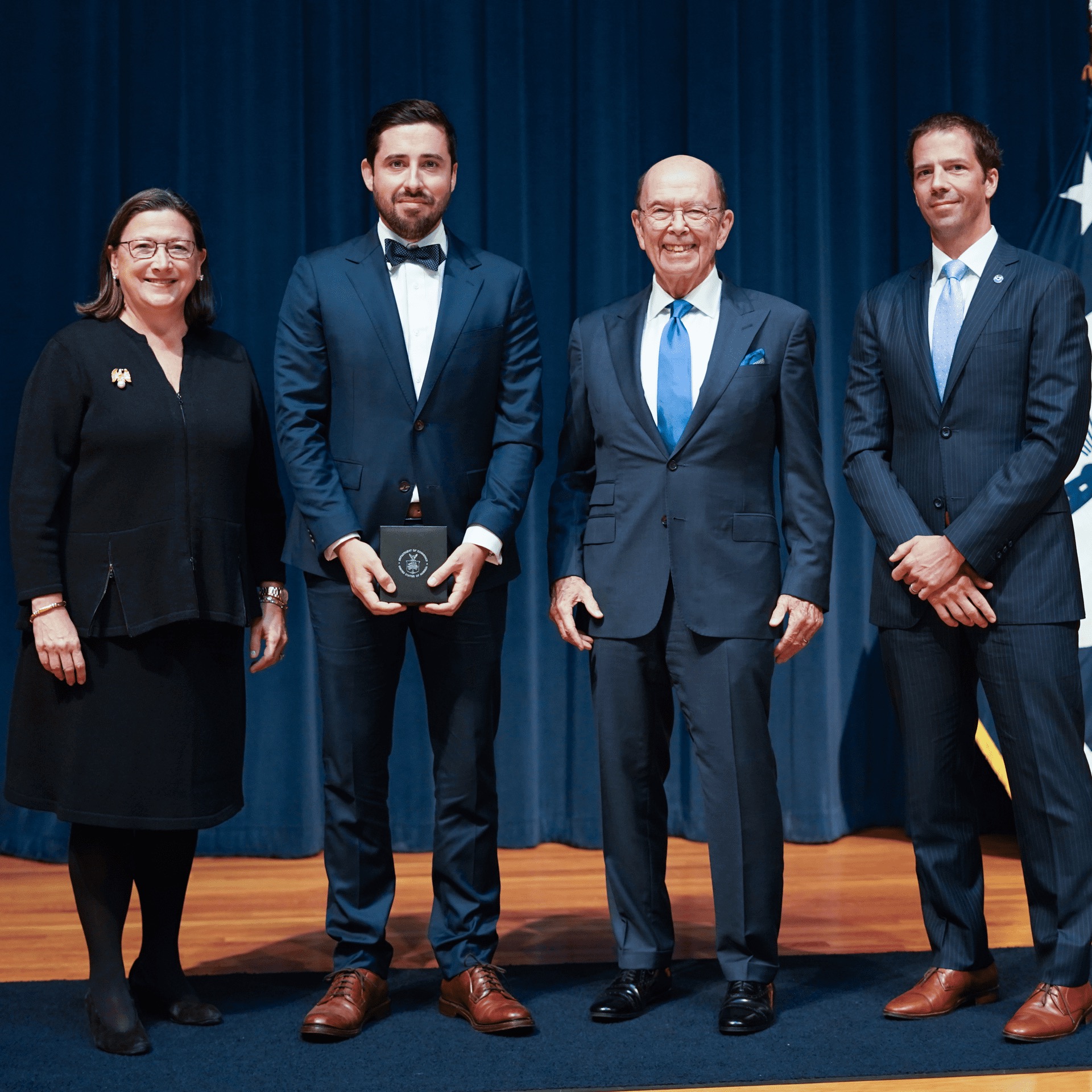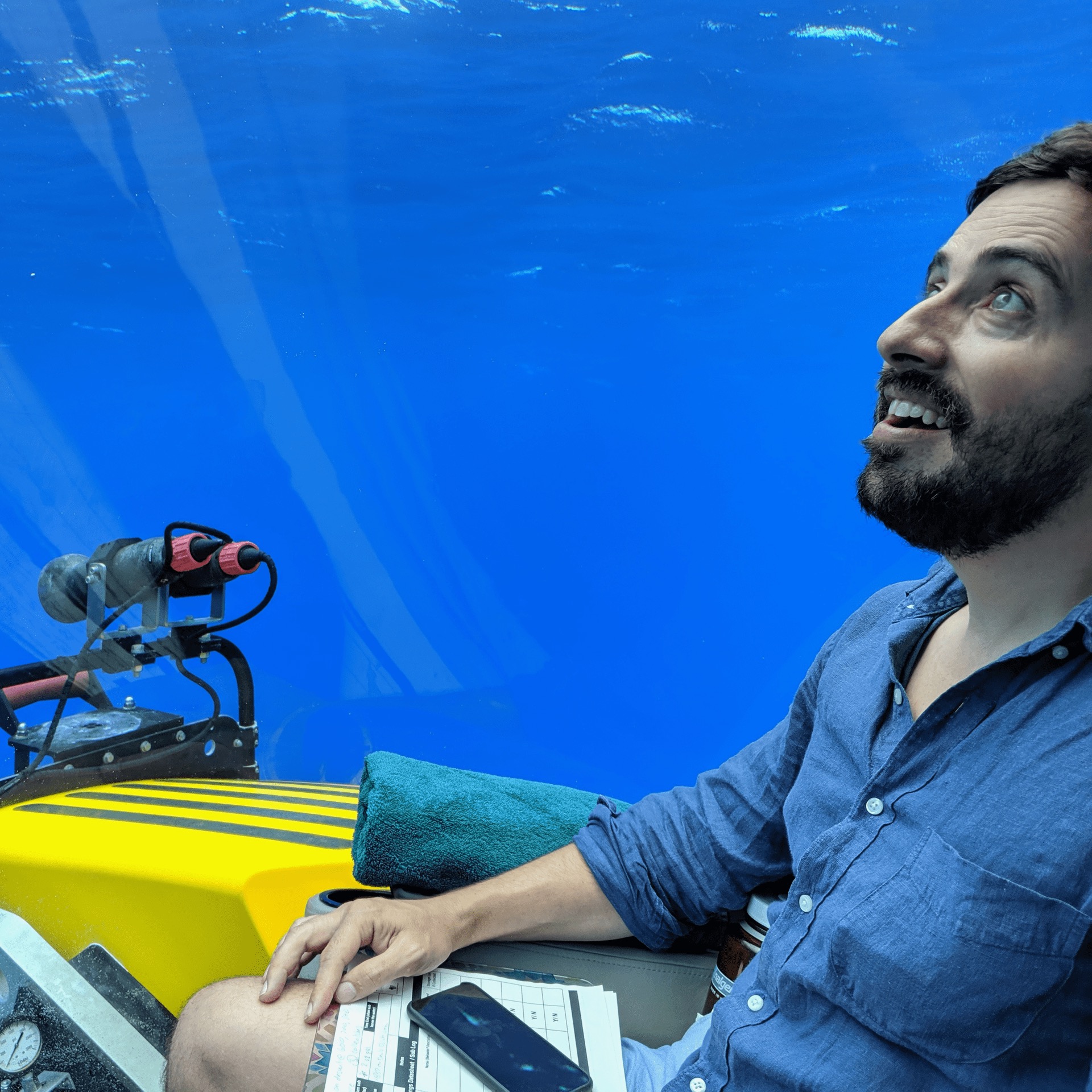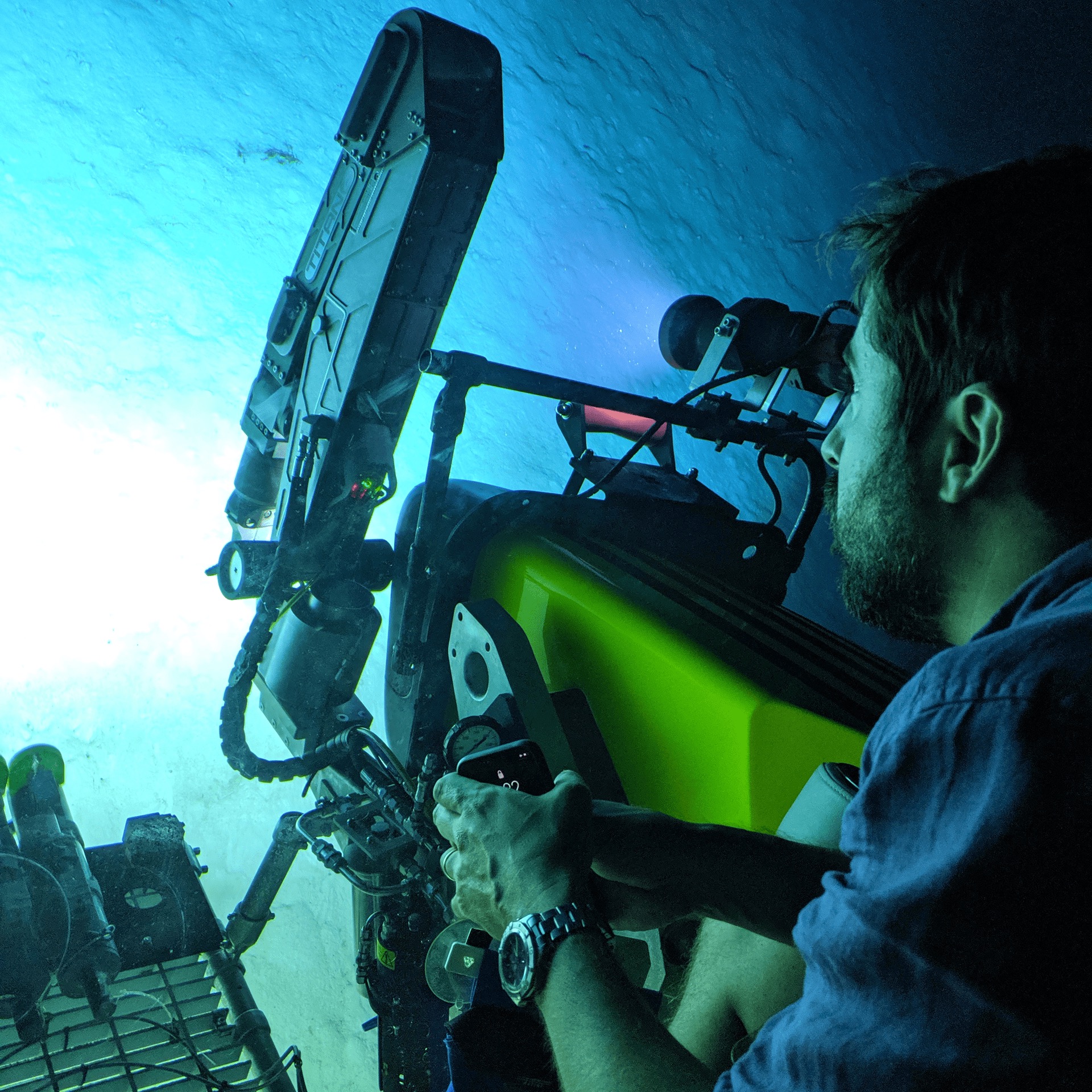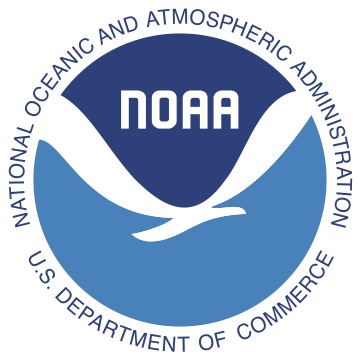

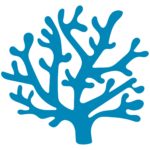
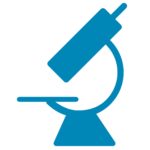
Meet Ian Enochs
I am the head of the Atlantic Oceanographic and Meteorological Laboratory (AOML) Coral Program. My research focuses on understanding the responses of corals and reef biota to global change. I am particularly interested in the impacts of warming and ocean acidification on the persistence of coral reef framework structures that provide essential habitat and support numerous ecosystem services. I apply a multidisciplinary approach, conducting research in both the laboratory and the field, as well as developing new technologies to address pressing research questions. I am a Principal Investigator of the National Coral Reef Monitoring Program, and lead several projects pertaining to the Coral Reef Conservation Program’s restoration pillar and NOAA’s Omics initiative. I graduated cum laude from the University of Miami in 2006 and later earned my Ph.D. at RSMAS in 2010 for my research on the environmental determinants of coral reef cryptic metazoan biodiversity in Pacific Panama. I am a research ecologist with the Ocean Chemistry and Ecosystems Division of NOAA’s Atlantic Oceanographic and Meteorological Laboratory in Miami.
2010 Ph.D. Marine Biology, University of Miami, Rosenstiel School of Marine and Atmospheric Science
2006 B.S. Marine Science and Biology, University of Miami
Get To Know Ian
I was born and raised in Indiana, far from the ocean and further from a coral reef. For some reason, however, I have always known I wanted to be a marine biologist. I went to the University of Miami for undergrad and jumped right into a PhD program when I graduated. I currently work as the lead of the coral program at the Atlantic Oceanographic and Meteorological Laboratory, a NOAA lab in Miami Florida.
I’m not sure becoming a Principal Investigator was really a goal, though I am grateful for the ability to work on the scientific questions I am most interested in, in ways that I think will be both productive and fun. That’s not to say that I direct everything that I do. Some of my most meaningful accomplishments, both personally and professionally, have been collaborative in nature. I am fortunate to work with some extremely smart people.
If I am honest, a typical day currently looks like a lot of meetings. There are experiments to plan, methodologies to plan out and test, diving operations to go over, data to discuss and interpret, papers to consider, budgets to work up, proposals and papers to write. Lots to do. It’s the atypical day that make my job particularly wonderful though. When I get to dive at a site that nobody has been to before, when we discover something scientifically that has never been seen before, or when a student writes a paper or earns a PhD, these are the things that are so amazing and rewarding that it’s hard to describe.
I’ll bring it back to meetings. Sometimes my attention wanders back to those atypical days.
Ocean acidification and thermal stress are symptoms of the same problem, humans producing too much carbon dioxide. Ocean acidification is slowing coral growth and leading to reef habitat erosion, while warming has contributed to widespread mortality. I care deeply about coral reef ecosystems and the services they provide to people and animals. The declines in reef health that we have been seeing are unprecedented and I have to do something about it.
My career has spanned 12 years since I became a postdoctoral researcher. Over that time, I have seen a monumental shift from just looking at problems to actively searching for or testing solutions. I think this is equal parts necessary and exciting.
Nothing less than protecting and preserving all coral reefs worldwide. I’m not entirely optimistic about the endeavor but complete resignation to the problems at hand doesn’t seem like a good course of action.
In my experience, there are always follow up questions. One thing that I have really enjoyed is applying new technologies to our research. We have been working with CT and 3D scanners, as well as 3D printers. You can approach the field of marine biology from many different backgrounds and perspectives.
Hard work and resilience. Science isn’t easy and setbacks are frequent. Just like anything in life, learn from your mistakes and move forward.
I don’t know what else I would do.
Interview conducted in May 2022

